Publications
Articles, publications, books, tools and multimedia features from the U.S. Institute of Peace provide the latest news, analysis, research findings, practitioner guides and reports, all related to the conflict zones and issues that are at the center of the Institute’s work to prevent and reduce violent conflict.
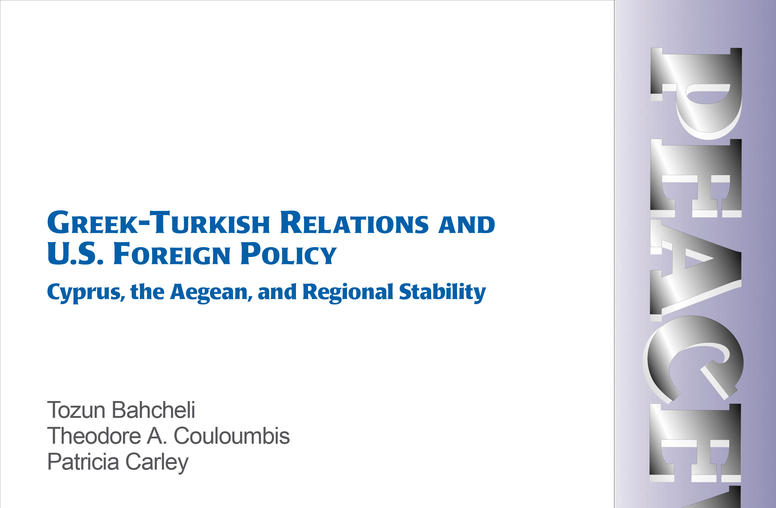
U.S. Foreign Policy and the Future of Greek-Turkish Relations
The United States Institute of Peace convened a workshop in Washington in summer 1996 that brought together Institute senior fellows. Elected participants identified possible areas of cooperation and collaboration and specific strategies of de-escalation, reconciliation, and resolution that could serve as the basis for a new era in Greek-Turkish relations. The insights and creative proposals of the participants are summarized in this report, written by Patricia Carley, program officer in the ...
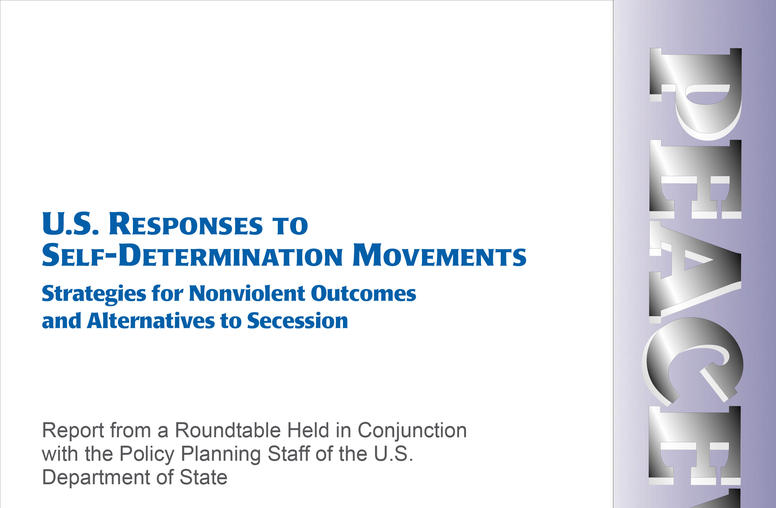
U.S. Responses to Self-Determination Movements: Strategies for Nonviolent Outcomes and Alternatives to Secession
The right to self-determination is proclaimed by numerous international documents, including the United Nations Charter and the Helsinki Final Act. However, this right has never been precisely defined and has thus come to denote different things to different peoples and governments at different times.
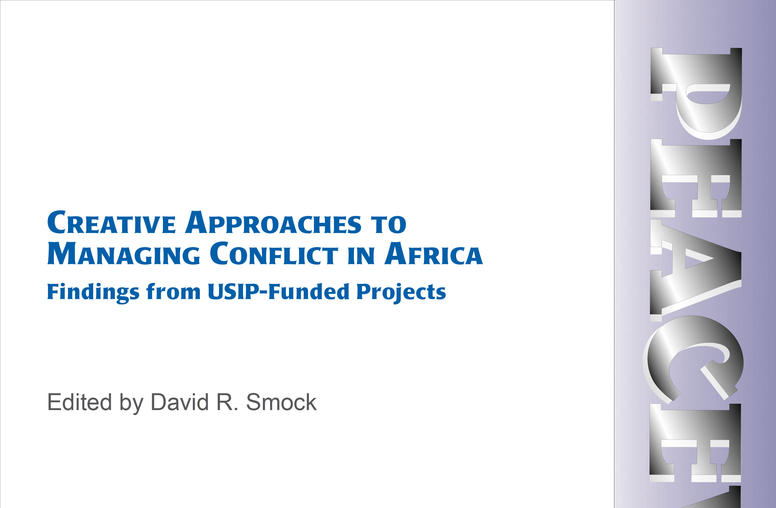
Creative Approaches to Managing Conflict in Africa: Findings from USIP-Funded Projects
The purpose of this report is to share some lessons of projects which have identified or implemented innovative approaches to managing Africa's conflicts, and examine their potential applicability to other conflicts there or elsewhere.
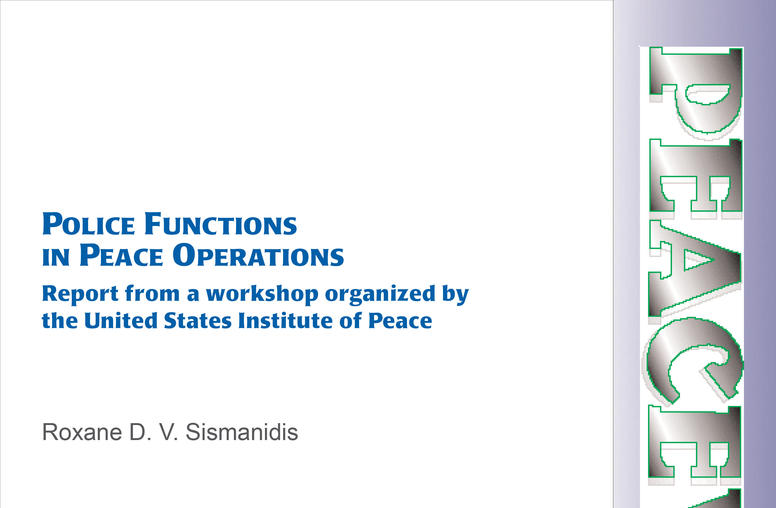
Police Functions in Peace Operations: Report from a workshop organized by the United States Institute of Peace
Much of the current debate on police functions in peace operations is informed by a distinct set of strategic and policy concerns that have acquired special prominence in the 1990s, as these operations have grown increasingly complex because of their deployment in countries whose societies have completely collapsed. The United States Institute of Peace decided to address these issues in view of its ongoing work on the rule of law and other postconflict issues.
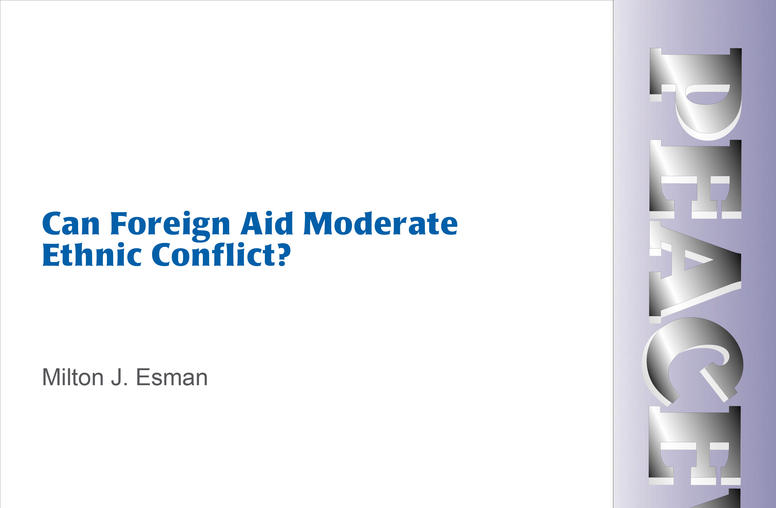
Can Foreign Aid Moderate Ethnic Conflict?
Since World War II, a complex network has emerged of bilateral and multilateral agencies that manage economic assistance to low-income countries in the form of investment projects, policy advice, and technical assistance. Although each of these agencies has its distinctive personality, most of them have avoided facing up to the post–Cold War reality of burgeoning ethnic conflict.
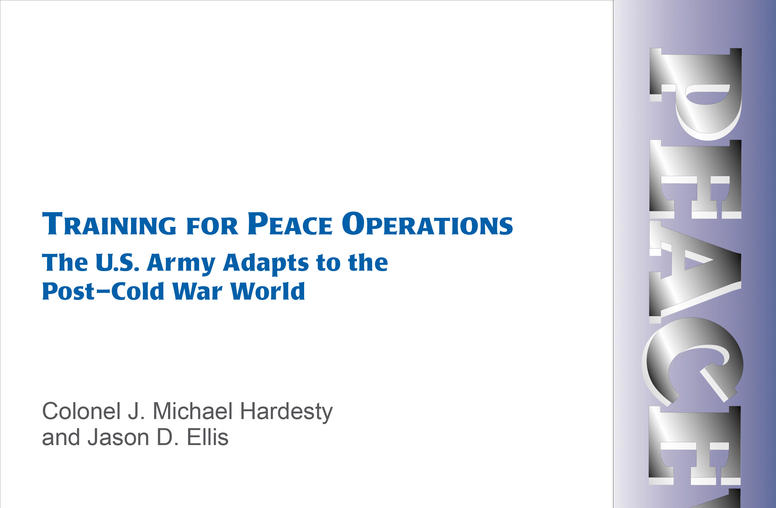
Training for Peace Operations: The U.S. Army Adapts to the Post-Cold War World
When the United States Institute of Peace announced a joint fellowship program with the U.S. Army War College, some observers unfamiliar with the Institute's work noted an apparent irony: Why should an organization devoted to the peaceful resolution of international conflict work with an institution whose main job is fighting wars?
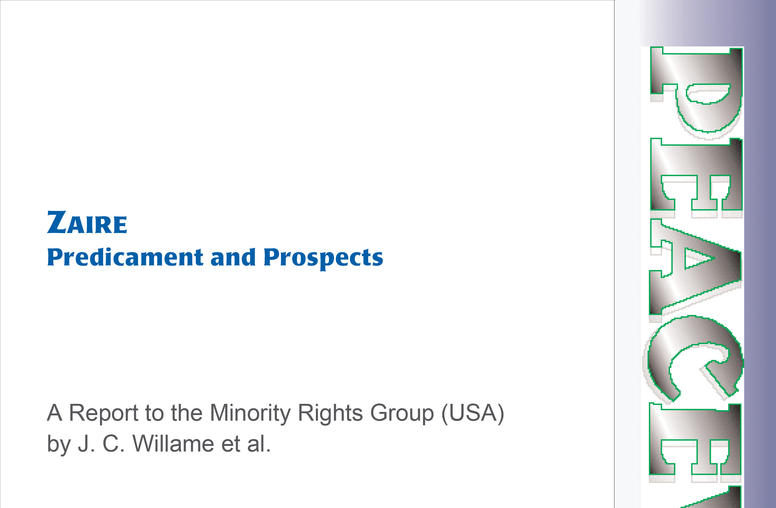
Zaire: Predicament and Prospects
For more than five years, the people of Zaire have struggled to survive in a state on the brink of utter collapse. Amid growing economic disarray and infrastructural breakdown, standards of living have plummeted, moral and ethical standards have withered, and violence has risen. Political authority is almost hopelessly fragmented and discredited.
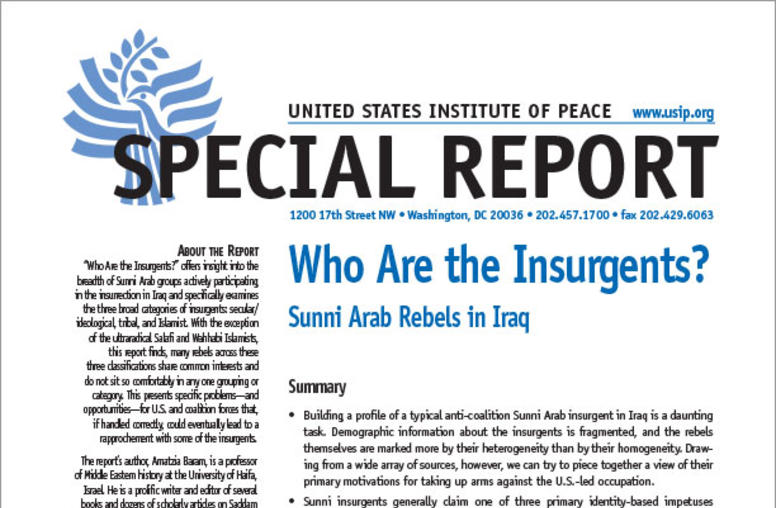
Who Are the Insurgents? Sunni Arab Rebels in Iraq
"Who Are the Insurgents?" offers insight into the breadth of Sunni Arab groups actively participating in the insurrection in Iraq and specifically examines the three broad categories of insurgents: secular/ideological, tribal, and Islamist. With the exception of the ultraradical Salafi and Wahhabi Islamists, this report finds, many rebels across these three classifications share common interests and do not sit so comfortably in any one grouping or category.
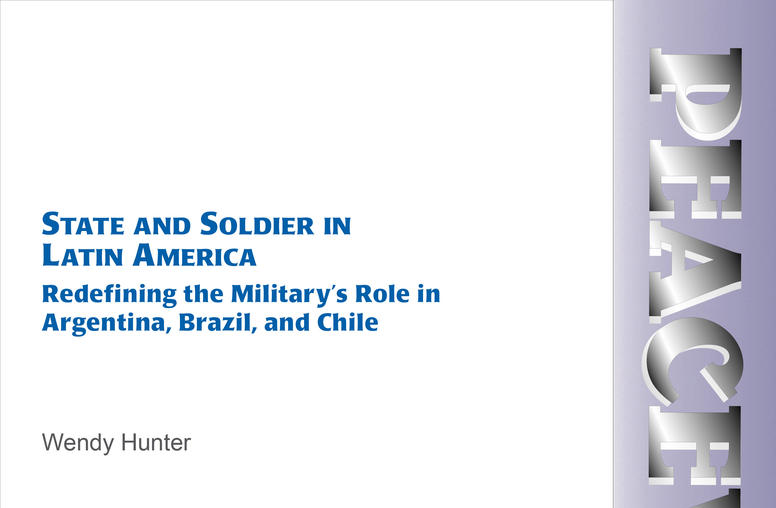
State and Soldier in Latin America: Redefining the Military's Role in Argentia, Brazil, and Chile
Recent years have given rise to an intense debate about appropriate roles for Latin America's armed forces: Should they remain the guardians of political stability, or should they restrict themselves mainly to external defense?
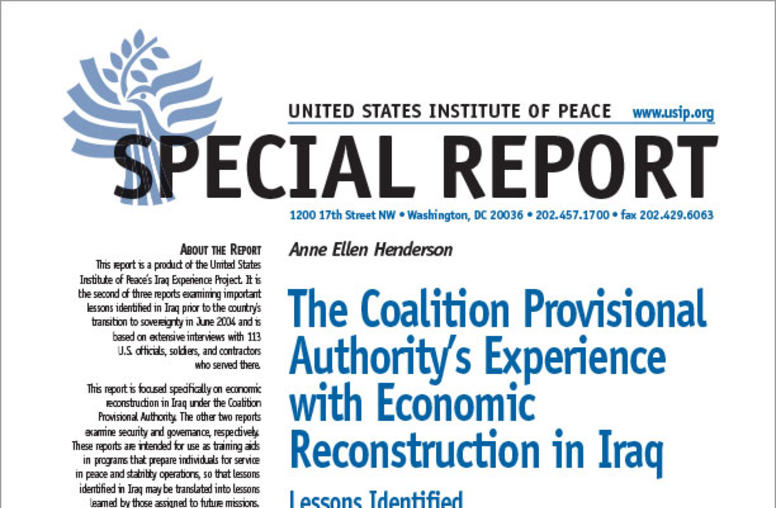
The Coalition Provisional Authority's Experience with Economic Reconstruction in Iraq: Lessons Identified
Summary Iraq's economic reconstruction under coalition occupation was notable for both impressive accomplishments and serious shortcomings. Many successful reconstruction initiatives shared essential elements: they were not affected by security disruptions; they were treated as top priorities; their funding was streamlined and their impact was quick; and they built on existing Iraqi capacity. Unsuccessful reconstruction initiatives had very different elements in common. Policy failure o...